
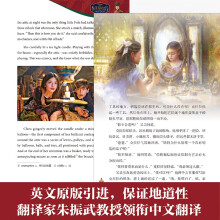
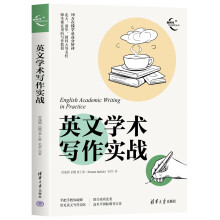
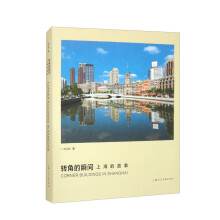
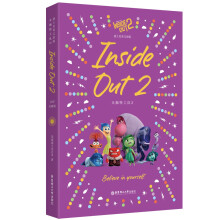
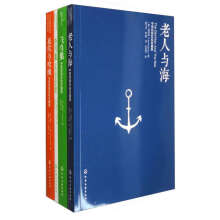





本书收录了英国著名作家J.M.巴里的多部经典剧作,包括《彼得•潘》《孤岛历险记》《女人皆知》《玛丽罗斯》。《彼得•潘》(Peter Pan)是巴里的代表作,讲述了不会长大的男孩彼得•潘与达林家的三个孩子温迪、约翰和迈克尔在永无岛(Never Land)上的冒险经历。《孤岛历险记》(The Admirable Crichton)、《女人皆知》(What Every Woman Knows)风趣形象地描绘了阶级与性别差异,《玛丽罗斯》(Mary Rose)则被誉为独一无二的舞台幻想剧。
The night nursery of the Darling family, which is the scene of our opening Act, is at the top of a rather depressed street in Bloomsbury. We have a right to place it where we will, and the reason Bloomsbury is chosen is that Mr Roget once lived there. So did we in days when his Thesaurus was our only companion in London; and we whom he has helped to wend our way through life have always wanted to pay him a little compliment. The Darlings therefore lived in Bloomsbury.
It is a corner house whose top window, the important one, looks upon a leafy square from which Peter used to fly up to it, to the delight of three children and no doubt the irritation of passers-by. The street is still there, though the steaming sausage shop has gone; and apparently the same cards perch now as then over the doors, inviting homeless ones to come and stay with the hospitable inhabit-ants. Since the days of the Darlings, however, a lick of paint has been applied; and our corner house in particular, which has swallowed its neighbour, blooms with awful freshness as if the colours had been discharged upon it through a hose. Its card now says No children,' meaning maybe that the goings-on of Wendy and her brothers have given the house a bad name. As for ourselves, we have not been in it since we went back to reclaim our old Thesaurus.
That is what we call the Darling house, but you may dump it down anywhere you like, and if you think it was your house you are very probably right. It wanders about London looking for anybody in need of it, like the little house in the Never Land.°
The blind (which is what Peter would have called the theatre curtain if he had ever seen one) rises on that top room, a shabby little room if Mrs Darling had not made it the hub of creation by her certainty that such it was, and adorned it to match with a loving heart and all the scrapings of her purse. The door on the right leads into the day nursery, which she has no right to have, but she made it herself with nails in her mouth and a paste-pot in her hand. This is the door the children will come in by. There are three beds and (rather oddly) a large dog-kennel; two of these beds, with the kennel, being on the left and the other on the right. The coverlets of the beds (if visitors are expected) are made out of Mrs Darling's wedding-gown, which was such a grand affair that it still keeps them pinched.° Over each bed is a china house, the size of a linnet's nest, containing a night-light. The fire, which is on our right, is burning as discreetly as if it were in custody, which in a sense it is, for supporting the mantelshelf are two wooden soldiers, home-made, begun by Mr Darling, finished by Mrs Darling, repainted (unfortunately) by John Darling. On the fire-guard hang incomplete parts of children's night attire. The door the parents will come in by is on the left. At the back is the bathroom door, with a cuckoo clock over it; and in the centre is the window, which is at present ever so staid and respectable, but half an hour hence (namely at 6.30 p.m.) will be able to tell a very strange tale to the police.
The only occupant of the room at present is Nana the nurse, reclining, not as you might expect on the one soft chair, but on the floor. She is a Newfoundland dog, and though this may shock the grandiose, the not exactly affluent will make allowances. The Darlings could not afford to have a nurse, they could not afford indeed to have children; and now you are beginning to understand how they did it. Of course Nana has been trained by Mrs Darling, but like all treasures° she was born to it. In this play we shall see her chiefly inside the house, but she was just as exemplary outside, escorting the two elders to school with an umbrella in her mouth, for instance, and butting them back into line if they strayed.
The cuckoo clock strikes six, and Nana springs into life. This first moment in the play is tremendously important, for if the actor playing Nana does not spring properly we are undone. She will probably be played by a boy, if one clever enough can be found, and must never be on two legs except on those rare occasions when an ordinary nurse would be on four. This Nana must go about all her duties in a most ordinary manner, so that you know in your bones that she performs them just so every evening at six; naturalness must be her passion; indeed, it should be the aim of every one in the play, for which she is now setting the pace. All the characters, whether grown-ups or babes, must wear a child's outlook on life as their only important adornment. If they cannot help being funny they are begged to go away. A good motto for all would be ‘The little less, and how much it is.’
Nana, making much use of her mouth, ‘turns down’ the beds, and carries the various articles on the fire-guard across to them. Then pushing the bathroom door open, she is seen at work on the taps preparing Michael’s bath; after which she enters from the day nursery with the youngest of the family on her back.
……
Introduction
Note on the Text
Select Bibliography
A Chronology of F. M. Barrie
THE ADMIRABLE CRICHTON
PETER PAN
WHEN WENDY GREW UP
WHAT EVERY WOMAN KNOWS
MARY ROSE
Explanatory Notes
温馨提示:请使用中新友好图书馆的读者帐号和密码进行登录
普通读者可以用这些书建构出一座图书馆。它们已经融入了我们的生活理念之中,我们还想要把它们请入我们的家里。
——牛津大学出版社
说来也像个奇迹,英国现存的三大戏剧家正巧代表了英伦三岛:箫伯讷代表爱尔兰,巴蕾(巴里)代表苏格兰,高氏(高尔斯华绥)代表英格兰。
——季羡林